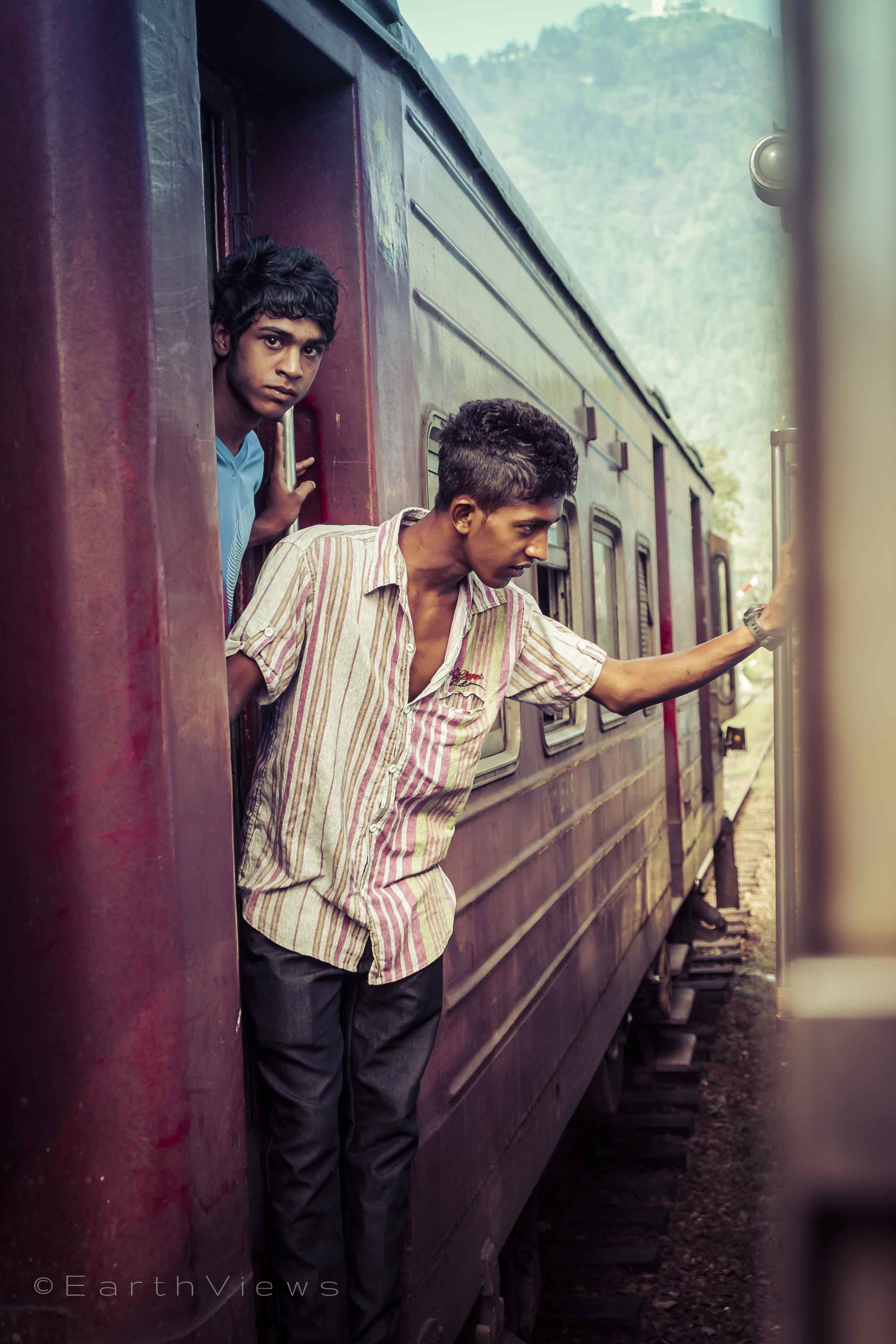







While the women return from the tea plantation, these boys play a game of cricket in a little town close to Dalhousie in the Nuwara Eliya District of Sri Lanka. This area is part of the Hill Country, which is world famous for its high quality tea. Away from the touristic area, this village is a beautiful setting where you can experience the authentic (colonial influenced) Sri Lankan rural life.

At the beach of Tangalle, Sri Lanka, these fishermen go out every morning. The three men push the catamaran in the water and two of them will jump in the boat and go fishing for about three hours.

This is a woman working at a tea plantation close to Dalhousie in the Nuwara Eliya District of Sri Lanka. This woman and her colleagues work on the plantation seven days a week, eight hours a day and earn only around € 50,00 a month. For this they have to pick around 15 kilogrammes of tea leaves a day. At the end of the day, the women walk with their harvest to the tea factory in the village to collect their wage.

On the railway from Kandy to Hatton in Sri Lanka the train stops at many stations. As another train entered the railway station, these two young men were interested in what was going on or who was sitting in the train just in front of me.

Mercado Central de San Pedro in Cusco, Peru, is a local market by Peruvians for Peruvians. It is a colourful market with a wide variety of the strangest products, such as fresh squeezed fruit juices, soup with jawbone, all kinds of herbs, or animal snouts. On the foreground a Quechua woman explores the market.

Every evening, the fishermen of Unawatuna in Sri Lanka prepare their catamarans to go fishing in the night. According to a local fisherman, the fish no longer appear during the daytime due to the many tourists who swim in the ocean and ride their jet ski’s. Because of this, the fishermen can only fish at night. They leave after sunset, around 6:30 in the afternoon and return just after sunrise, around 6:30 a.m. Most fishermen, like this man, use catamarans because of their stability, and row 3.5 kilometres into the Indian Ocean to reach the fishing spots. Although this is a sad story, the fishermen make the best of it and cheerfully adapt to the situation.

At the beach of Egmond aan Zee, the Netherlands, this man fishes for sea bass. He takes the fish home to eat it for himself. Strandvisser is Dutch for ‘beach fisherman’.